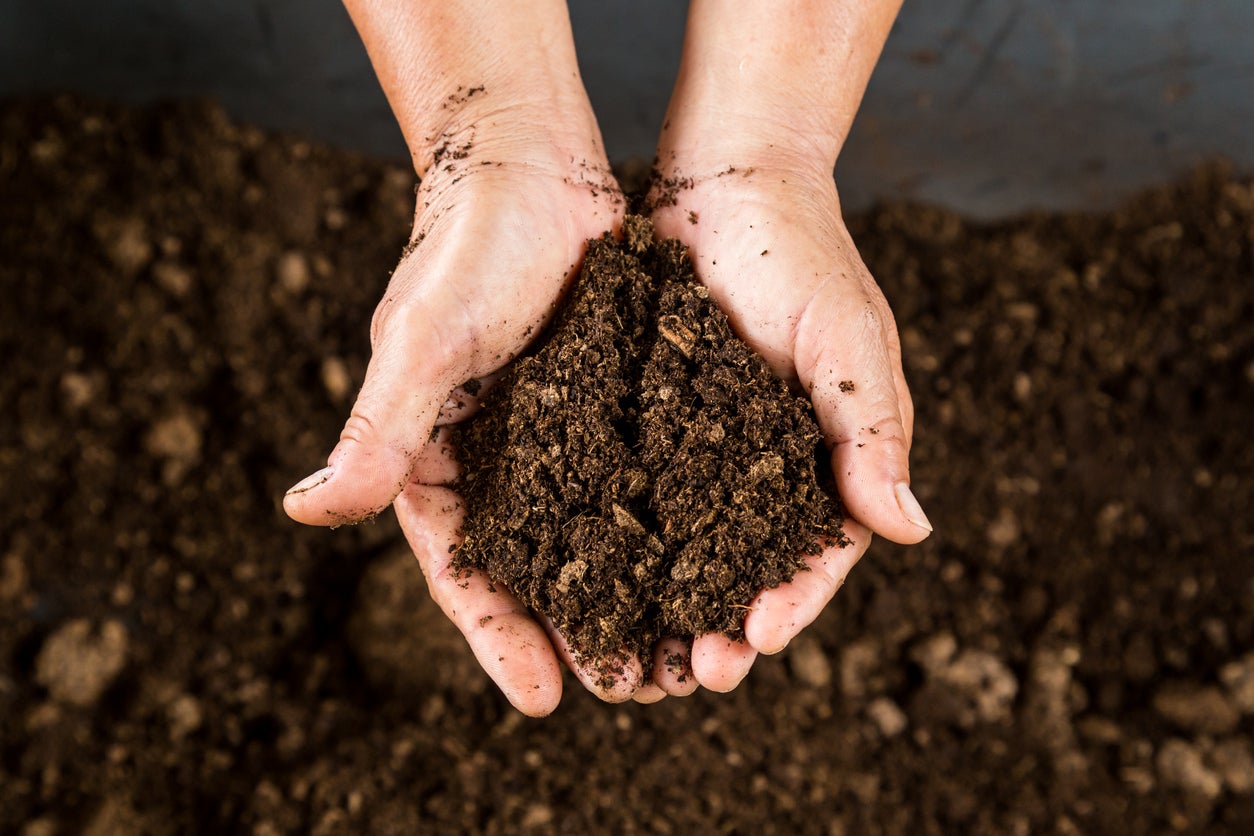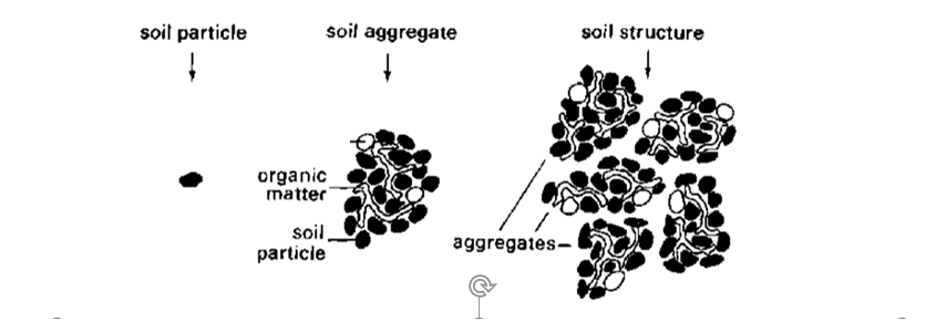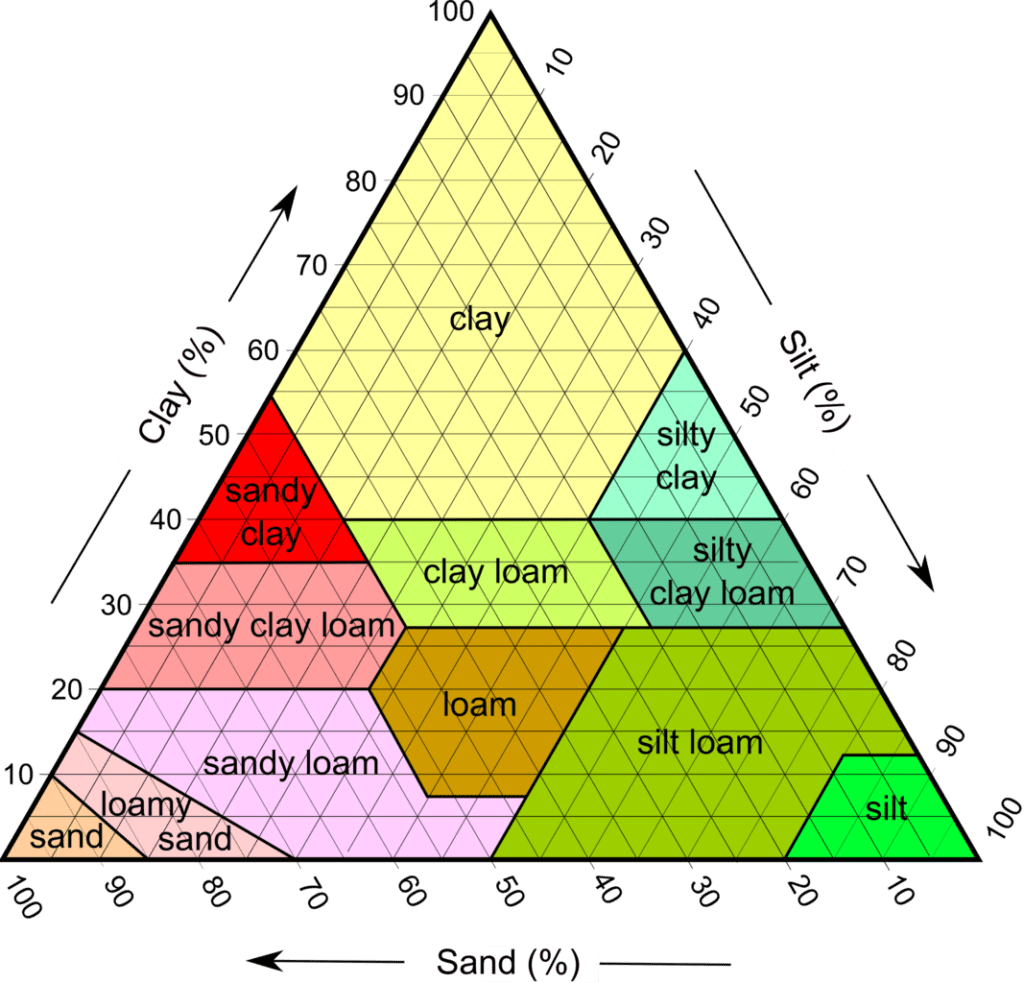
Strategies to Optimize Soil Moisture
Changing weather patterns, recurring drought, and irrigation restrictions have highlighted the need to develop comprehensive strategies to optimize Soil Moisture for crop production. Soil Moisture content in a crop field is determined by factors such as Soil Texture, Soil Structure, and irrigation or rainfall amount. Wilbur-Ellis agronomists have developed tools to augment these factors that Optimize soil moisture.
Soil Texture is the classification of soil based on the proportion of Sand, Silt, and Clay sized particles. Coarse soil textures, which contain a high proportion of sand, have fewer micropores and hence have lower Soil Water Holding Capacity. Fine Soil texture like clay has more micropores and thus higher soil water holding capacity. Soil Water Holding Capacity is the amount of water that a given soil can hold for crop use. Coarse textured soils can be water repellent and water infiltration rates may be low which leads to runoff during rainfall or irrigation events. Soils that undergo frequent wetting and drying cycles can also be susceptible to water repellency. Wilbur-Ellis has developed a technology to reduce water repellency which increases infiltration into the soil. Additionally, the hydration agents in this technology help with moisture retention in the root zone in a broad range of soils by decreasing the water tension of the soil, which allows the water to displace air in micropores and be filled with water. This moisture retention technology helps reduce irrigation requirements even in fine texture soils and reduces water loss below the root zone.

Soil structure refers to the grouping of soil particles (sand, silt, clay, organic matter, and fertilizers) into porous compounds. These are called aggregates. Soil structure also refers to the arrangements of these aggregates separated by pores and cracks.
Soil Texture is permanent and cannot be changed. However, the way particles that makeup soil texture are arranged can be changed. This arrangement of soil particles through aggregation is called Soil Structure. The quality of soil-structure influences the number of micropores. The better the soil structure, the more the micropores are in the soil, and consequently, the more water a soil can hold for crop use (water holding capacity). The Soil Structure deteriorates due to cultivation and decline in Organic matter. To improve Soil Structure, we can increase the aggregation of soil particles by adding more organic matter or essentially improve the carbon in our soils. Wilbur-Ellis Agronomists have cost-effective tools to add Functional Carbon to soils that will improve micropores and increase soil water holding capacity.
The Field Water Capacity of the soil is determined by the amount of water held within the micropores of a given soil. When the moisture in the soil cannot be utilized by crops, we reach the Permanent Wilting Point. The moisture between Field Capacity and Permanent Wilting is called “Available Water” or “Soil Water Holding Capacity”. Understanding the Soil Water Holding Capacity helps determines the irrigation needs of the crops. Wilbur-Ellis Irrigation Water Management tool calculates the Water Holding Capacity of soil and helps guide the irrigation needs for the crop. Monitoring soil moisture is an essential tool to prevent over-irrigation and conserve our water resources. Wilbur-Ellis’ Irrigation consultant works with growers in understanding the irrigation water amount and irrigation frequency so that the soil moisture is in the optimum range for crop production.

Soil Texture Triangle
Curious to learn more about optimizing your water and soil moisture? Contact us Today!
Austin Say, Sales Representative | 541-777-1393
Jay McCabe, Sales Manager | 541-325-3526
Tyler Pike, Sales Representative | 541-213-4916
Mike Knepp, Sales Representative | 541-980-4843

